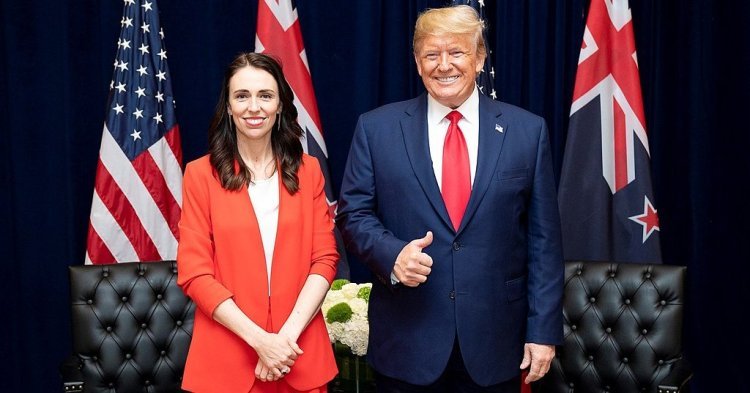Without wishing to make light of the challenges we face or grief that many are feeling, I wanted to indicate that the chaotic standstill to which COVID-19 has so abruptly brought us could, if we choose, represent a real critical juncture for our societies – and for Europe. With almost all normal social and economic activity frozen, the end of COVID-19 is the beginning of the world we rebuild afterwards, and is indisputably a chance to do things better.
With the aim of brightening a few depressing newsfeeds and quenching a certain thirst for exploring what we could learn from the crisis, I put together a list of five mini-revolutions that irritatingly optimistic people like myself will consider not only possible, but also likely, when we finally switch society back on after lockdown.
1 - A more positive discourse on immigrants and low income groups
The corona crisis has shone a spotlight on sectors which disproportionately benefit from immigrants’ and low earners’ contributions – including healthcare, agriculture and care work – which have proven to be the skeleton of society in times of corona. Britain’s Home Secretary Priti Patel’s enthusiasm for turning away “low-skilled” immigrants, with her definition of low-skilled being earning less than an (arbitrary) threshold, revealed her contempt for anyone in that wage bracket.
While in intensive care suffering from coronavirus, Prime Minister Boris Johnson, whose poisonous rhetoric has caused xenophobic sentiment to spiral, was cared for, among others, by an Italian, a Spaniard and a New Zealander. Meanwhile, farmers in the East of England are panicking because their produce is rotting unpicked through being unable to recruit workers locally, and care homes could not get through a day without the hard work of care workers, a significant proportion of whom hail from Romania and Poland.
Essentially, recent weeks have exposed, more than ever before, Britain’s absurd hypocrisy on the issue; not only did low-paid workers turn out to have highly sought-after skills, but immigrants contribute hugely to the most crucial processes needed to keep society ticking over. We should see a rise in awareness that it is a mistake to judge people, wherever they were born, by what their employer is willing to pay them; and I hope for a kinder, less exclusive society as a consequence.
2 – Don’t tell us that’s not possible
A decade of austerity has left Europe divided, with increasing inequalities between North and South and also within national borders. We have been so extensively bombarded with the “we would love to but there’s no money” narrative that staggering state spending in response to the crisis seems shockingly decadent. Yet covid has shown us that national governments can whistle up large sums when they deem it worthwhile, and I believe that voters and the press will scrutinise government justifications on budgets more attentively and critically in the future.
Certainly, states cannot spend limitlessly, but the allocation of scarce resources is a choice, and a deeply political one at that. At the beginning of lockdown, homeless people vanished from our streets in many countries almost overnight, and have been provided with temporary shelter and food. While this does not end homelessness or tackle the roots of its causes, it does show that we can begin to take care of the very poorest in society when we think it’s important enough. After the crisis, I hope there will be more recognition that a failure to do so is a choice, too.
3 – Choosing better leaders
In crises, bad leadership costs lives. As Boris Johnson, Donald Trump and Brazilian President Jair Bolsonaro alternately boasted, joked and dithered, infections rose and death tolls mounted. Now that the urgent rawness of the crisis is exposing the shallowness of their populist bravado overinflated by their own egos, absolutely nothing of substance is left.
The contrast with New Zealand’s Jacinda Ardern could not be starker. Speaking with seriousness, but with a deep personal gratitude for the sacrifices she was asking New Zealanders to make, she broke the difficult announcement of strict and early lockdown during a televised press conference. She treated her fellow citizens as esteemed co-signatories of a plan to ensure their collective safety, not as subjects to be ordered around (as was somewhat the case in France) or as potentially expendable when inconveniently vulnerable (as in the US).
By taking the time to show that her decisions were prudent and science-based, Ardern secured the trust and cooperation of New Zealanders and kept the infection and death rate exceptionally low, with just nine Kiwis having lost their lives to the illness at the time of writing. Ardern was even able to confirm to children that the Easter bunny is considered an essential worker and herself took a 20% pay cut. The whole thing was a masterclass.
Empirical research suggests populist, and especially right-wing populist, parties benefit in the wake of crises; yet I am optimistic that COVID-19 has helped show that populism is no solution. To all the (many) people who told me that they didn’t trust Boris Johnson but that they would vote for him anyway because they liked him: perhaps, next time, you should vote as if a crisis were just around the corner.
4 – An opportunity for further European integration
Facing stiff criticism over an initially lethargic response, the EU has been confronted with much speculation that the very future of the EU is at stake if it does not muster an adequate reaction to the corona crisis. However, a blooming field of scholarship points to how crises provide moment for further integration which, in normal times, would have been foiled by complacency.
“Coronabonds”, an idea to help poorer member states fund their public debt, might be doomed, yet the recently unveiled, rather confidently named “SURE” plan (Support to mitigate Unemployment Risks in an Emergency) is the closest the EU has ever come to a genuinely European social policy. By directing the cash towards tackling the mass unemployment and its social impact that will inevitably stem from the covid crisis, the EU shows that it has learnt some lessons from the previous continent-wide crisis of 2008 which had particularly drastic consequences for employment and well-being in southern Europe.
The EU should seize this chance to transform these temporary fixes measures into more permanent, more harmonised social policy structures. If it succeeds, it would make for a more cohesive continent with stronger social fabric – and better prepared for the next crisis when it hits.
5 – Green Deal and thinking green
President of the European Council Charles Michel has announced plans to link Europe’s economic recovery to the Green Deal after a demand from over dozen member states. With the European economy at a standstill, we will never get a better opportunity to rethink our approach to work. Now that companies have been forced to take to Skype and Zoom rather than send employees away to conferences, and now that millions are getting accustomed to working from home rather than commuting, the private sector has been forced to think greener as well.
Overall…
We face a lot of challenges even after the grief and pain of the disease is over. Vulnerable people are more vulnerable; marginalised groups more marginalised. But we also have a chance to kick-start a kinder and better society within a kinder and better Europe. And in a world where the mafia has taken to distributing food to struggling families, anything is possible.


Follow the comments: |
|
